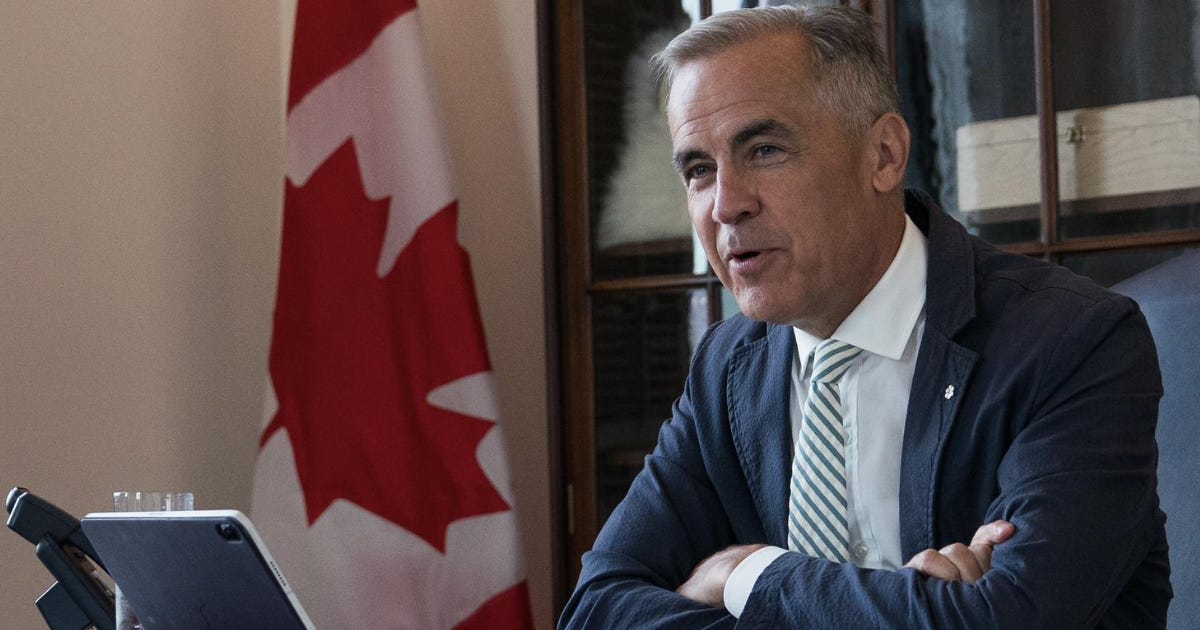Legal experts warn Liberal border bill would violate Canadians' privacy rights
Civil liberties advocates and legal experts are renewing calls to reform the Strong Borders Act, Bill C-2, as the bill enters its second reading and is once again debated in Parliament.
Civil liberties advocates and legal experts are renewing calls to reform the Strong Borders Act, Bill C-2, as the bill enters its second reading and is once again debated in Parliament.
Constitutional lawyers and other legal experts are condemning the current iteration of the Liberal government's Bill C-2, sponsored by Public Safety Minister Gary Anandasangaree, saying the bill will violate the privacy rights of Canadians if it receives Royal Assent in its current form.
The bill, which began its second round of debates on Tuesday, aims at addressing security concerns along the U.S.-Canada border, a point of contention between the Trump administration and Canada.
Among other points, the bill would allow Canada Post and police to open, seize and retain mail, including letters, “under conditions.” The bill also permits the disclosure of personal information for immigration and citizenship purposes, prohibits acceptance of $10,000 deposits from third parties under certain conditions and enhances the Canadian Security Intelligence Service's powers.
Constitutional lawyers have warned of the scope of the omnibus bill since it was introduced, with many of their concerns not being addressed in the bill's current iteration.
The JCCF urged Canadians to sign its petition warning of the potential for the criminalization of $10,000 cash transfers to be further limited to smaller sums of money, and for it to attack the right for Canadians to do what they want with their cash in an otherwise legal way.
Michael Geist, an internet law professor at the University of Ottawa, along with the Canadian Constitution Foundation, and the Justice Centre for Constitutional Freedoms, have all raised concerns about privacy violations inherent in the bill.
Geist warned in a post on X and a subsequent article that the “omnibus border measures bill” will expand government powers to include 'warrantless access to personal information' and increased surveillance capabilities in Canadian networks.
Geist raised concerns over the scope of the bill, saying it combines “everything” from border measures to restrictions on cash transactions and warrantless access for law enforcement to private information.
He argued that Parts 14 and 15 of the bill should be removed or placed in a second bill. The sections mandate that “electronic service providers” give personal data of “authorized persons” under the Criminal Code and the CSIS Act to law enforcement.
Geist was worried that debates in Parliament thus far have lacked enough discussion over privacy violations inherent in the bill. He also noted the potential for the Bloc Québécois to support the government in passing the bill, and criticized the Liberals' apparent lack of understanding of the civil liberties violations that come with the proposed legislation.
The bill would enable law enforcement to gather personal information if they only have “reasonable grounds to suspect” that an offence has been or “will be” committed. He also noted that the offence in question extends beyond criminal investigations, as it covers any Act of Parliament.
He warned that the scope of information gathered could include personal communications or be used to identify if an individual was at a protest, and the directive for providers to relinquish information on clients applies to “literally anyone who provides services to the public.”
Geist also raised concerns that the person forced to disclose the information is barred from revealing that they complied with the disclosure for a year, meaning these violations could be done in secret. He also said the bill would “open the door” for law enforcement to request client information be disclosed on a voluntary basis without repercussions for the service provider.
The CCF similarly said the bill could mean Canadians lose their fundamental privacy rights and grant “unprecedented surveillance powers” to the state without jurisdictional oversight.
Like Geist, the CCF identified that the bill would allow police to demand information without warrants and enlist financial institutions and electronic service providers to secretly spy on individuals. Josh Dehaas, a litigator for the CCF, also noted the new powers would allow the feds to open letter mail without safeguards.
“At best, this law would allow police and CSIS agents to take shortcuts in their investigations that will lead to accidental privacy breaches,” Dehaas said in a statement. “At worst, this bill could allow the government to build a surveillance state.”




It's Carney.
It's the Lieberals.
Rights???
Citizen Rights???
What Rights???
You will have the rights we give you and you will be happy.
You didn't think it was going to be any different under Carney did you?
... OH .. Sorry Elbows Up crowd... Poster children for you can be fooled ALL OF THE TIME.
Yes the lieberal communist party is in full swing, no denying it now.